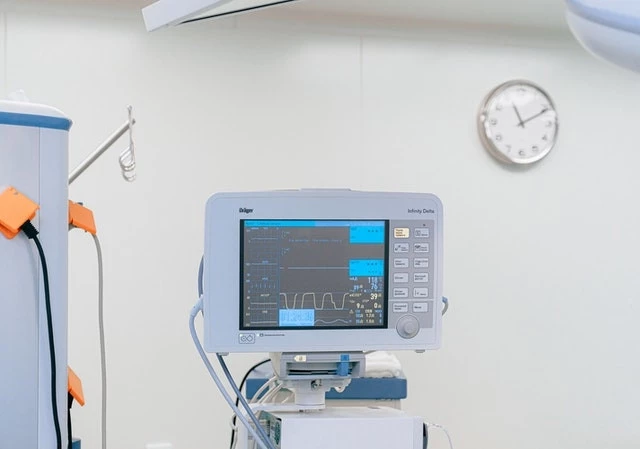Coloplast's Inge Ørnhøj on Lessons Learnt from Implementing a UDI Labeling Project
Add bookmark
In this exclusive interview Inge Ørnhøj, Senior Process Improvement Manager, Supply Chain Process Improvement at Coloplast A/S, speaks about the impact she thinks the regulation will have on the industry and the main challenge facing UDI labelling over the next 1-3 years. Ørnhøj also shares lessons learnt from implementing a UDI labeling project and her future predictions with regards to unique identifiers for medical devices.
Pharma IQ:The FDA final ruling on universal device identifiers for medical devices is expected to be published in early August. Last month the European Commission announced their intention to take an internationally harmonised approach and follow the FDAs decision over here in Europe. What impact do you think this is having on the industry?
I Ørnhøj:At the moment, there is a lot of uncertainty in the industry regarding the additional requirements of the UDI proposal and I hope of course, that will be cleared up with the final ruling. Then of course, there’s a lot of work. We have to go through all our Class III and II products to make sure that they live up to the physical requirements.
We also need to check that data availability of all of our products, and a lot of companies have to set up a data hub to actually collect all this data, so there’s a huge task ahead for all of us.
Pharma IQ:What is your current biggest challenge right now, and how are you handling that?
I Ørnhøj:I am focussed on the UDI database part, and for me, the biggest challenge is the missing data availability. To give you an example, the storage conditions which have been a UDI database requirements for both FDA and the IMDRF for the last couple of years, so I guess that is one of the things that is going through. For us, the storage condition is just part of our region box art work which means that we don’t have it accessible, data extractable. We also have the issue that we don’t have control of all our retail box art work as we have a lot of contract manufacturing, and we don’t have, for those items, a direct link between our retail box and the finished goods. So we had to establish these data so they can be data extractable. So that is just one example of data that we had to collect, that we don’t have available for the UDI database at the moment.
[inlinead]
Pharma IQ: In your opinion, what is the main challenge facing UDI implementation over the next one to three years?
I Ørnhøj:First of all, it is how big the project is, and how it is impacting a lot of functions in the company that normally do not work closely together. The implementation product is both very technical, for instance, with print technology and IT infrastructure, and at the same time, it is very people related, setting up data governance organisation, making art work design decisions, evaluate partners of the supply chain outside of the company for handling for instance to the bar code, and make decision regarding data clean up. For us, that is a major challenge and means that we have to work closely together with people that normally do not talk the same language basically.
Pharma IQ:And what are your future insights with respect to universal device identifiers?
I Ørnhøj:First of all, the requirements as we know them today is quite high for Class II and III products, and I actually expect that while hospitals gain the supply chain advantage of getting this scannable bar code on each level product, so they can scan bedside, for II and III products, and then automatically can make a resupply of the product, and then make their logistic functions more effectively. I’m sure that it means that in the future they will raise a requirement for getting this information also on each level on Class I products, and for a company like us, and I think most of the medical device companies, that will be a very huge task.
Pharma IQ:I understand that you’re going to be speaking at the upcoming Medical Device UDIs and Traceability event, Inge, what are you hoping to gain from the event?
I Ørnhøj:First of all, I hope to get clarity about new UDI requirements, so I have no open questions afterwards, that’s a bit naïve, so at least some more clarification, and then of course, a lot of knowledge sharing with all the other medical companies.
Pharma IQ:I want to thank you for sharing your insights with us today. We look forward to hearing much more from you at the event.
I Ørnhøj:You are so welcome, nice talking to you.
Pharma IQ:If you would like to find out more about medical devices for UDIs and Traceability, go to www.udisandtraceability.com.
Medical Device UDIs and Traceability, takes place on 24 - 26 September, 2013 - Munich, Germany. For more information about Medical Device UDIs and Traceability, please visit www.udisandtraceability.com, email enquire@iqpc.co.uk, or call the team on +44 2070261300.
--------------------------------------------------------------------------------------------------------------------IQPC
Please note that we do all we can to ensure accuracy within the translation to word of audio interviews but that errors may still understandably occur in some cases. If you believe that a serious inaccuracy has been made within the text, please contact +44 (0) 207 368 9429 or email andrea.charles@iqpc.co.uk
|
|
|
Have Your Say Rate this feature and give us your feedback in the comments section below |













